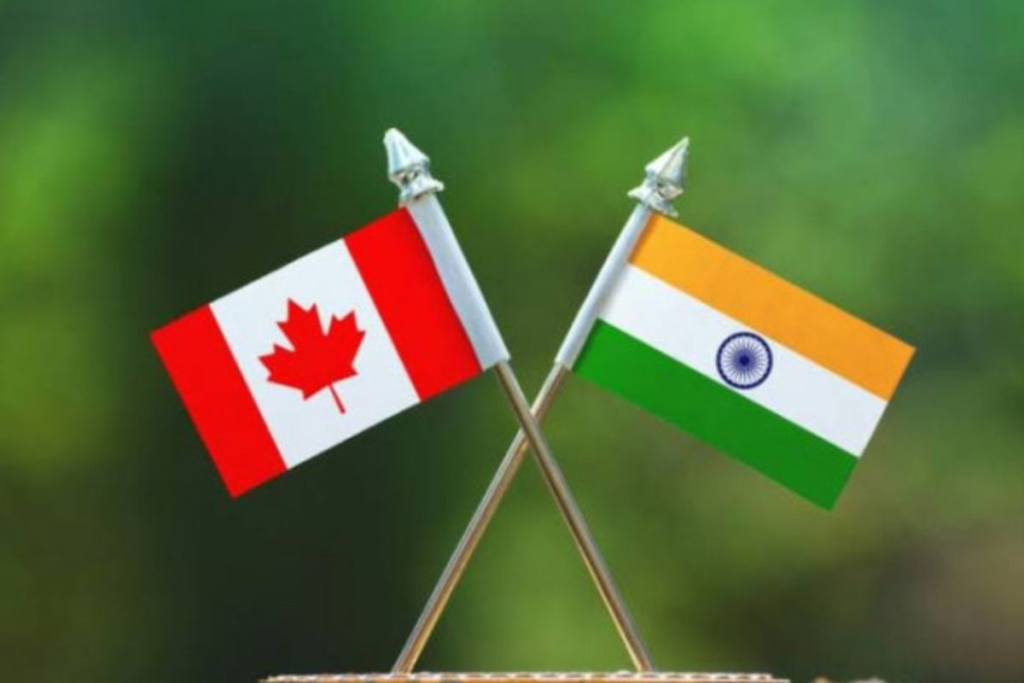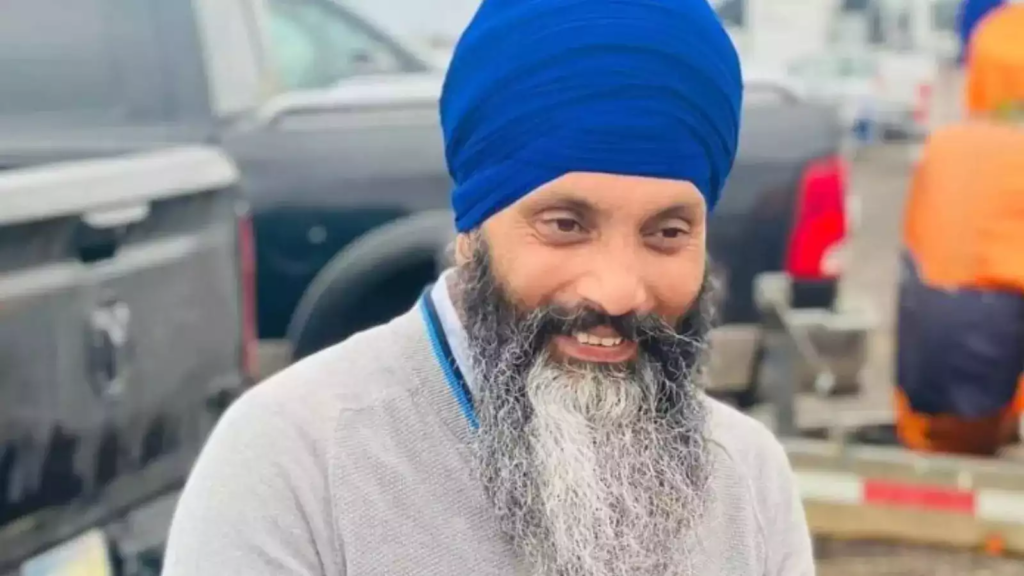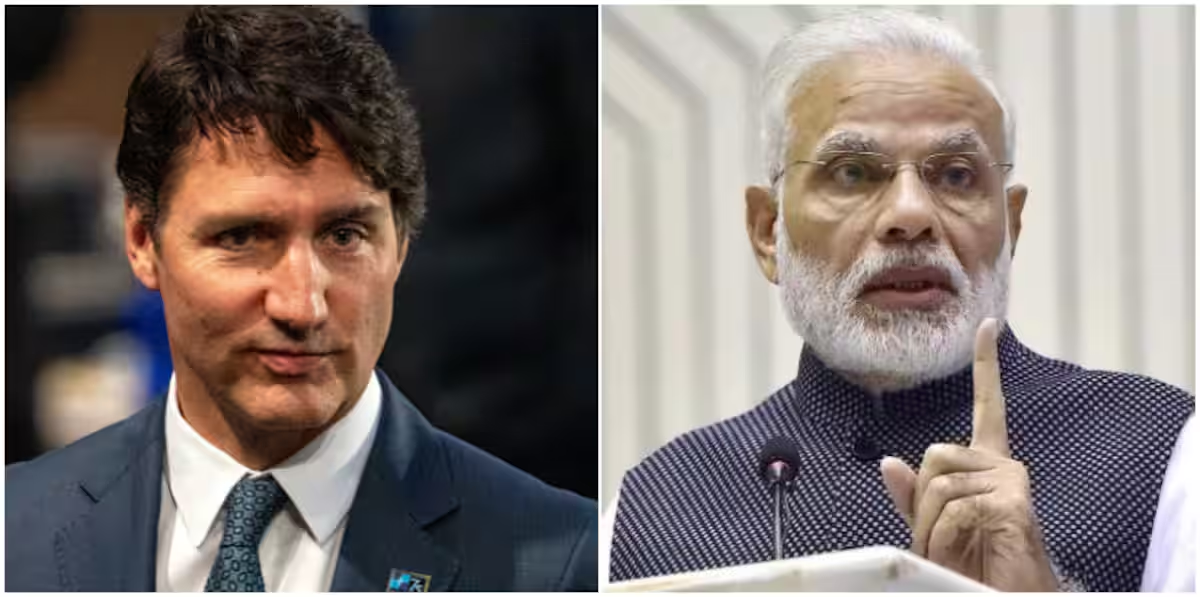The diplomatic relationship between India and Canada has reached a critical point. India expels six Canadian diplomats, a significant response to what it considers unwarranted allegations and actions taken by the Canadian government.
This move comes amid heightened tensions between the two nations, primarily driven by accusations related to the killing of Hardeep Singh Nijjar, a pro-Khalistani terrorist.
While Canadian Prime Minister Justin Trudeau’s administration has suggested Indian involvement in the killing, the Indian government has strongly rejected these allegations and taken firm steps to protect its diplomats.
Rising Diplomatic Tensions Between India and Canada
Diplomatic relations between India and Canada have been strained for years, but the situation escalated in September 2023 when Prime Minister Trudeau made explosive claims in Canada’s parliament.
He alleged that Indian government agents could potentially be involved in the assassination of Hardeep Singh Nijjar, who had been advocating for a separate Sikh state—Khalistan—within India. Nijjar’s death, labeled as a terrorist act by Indian authorities, became a flashpoint in the already deteriorating relations between the two nations.
Read : Ambani and Musk Oppose Each Other Over Satellite Spectrum Allocation in India
However, despite the gravity of these allegations, the Trudeau administration has yet to provide any concrete evidence linking Indian officials to Nijjar’s killing.
Read : India Second Biggest Threat to Canada After China: Canadian Panel Report
The Indian Ministry of External Affairs (MEA) has voiced its frustration over Canada’s lack of substantiation regarding these claims. India has repeatedly asked Canada to produce evidence to support these allegations, but no significant information has been shared. The absence of evidence, combined with what India views as politically motivated accusations, has only deepened the diplomatic rift.
The Indian government’s expulsion of six Canadian diplomats reflects its frustration over these unsubstantiated allegations. New Delhi views the move as necessary to protect its own diplomats, who were increasingly becoming targets of the Canadian government’s investigation.
The six Canadian diplomats who have been asked to leave India include Acting High Commissioner Stewart Ross Wheeler and Deputy High Commissioner Patrick Hebert. Alongside them, First Secretaries Marie Catherine Joly, Ian Ross David Trites, Adam James Chuipka, and Paula Orjuela were also expelled.
The deadline for their departure has been set for October 19, 2024, underscoring the seriousness of the situation. India’s actions send a strong message to the Canadian government that it will not tolerate baseless accusations and politically motivated actions that could endanger its diplomats.
Withdrawal of Indian Envoy and the Safety Concerns
One of the most significant aspects of this diplomatic fallout is India’s decision to withdraw its own High Commissioner, Sanjay Verma, along with other Indian diplomats stationed in Canada.
According to the Indian Ministry of External Affairs, these diplomats were labeled as “persons of interest” by Canadian authorities, a term that implies potential involvement in the investigation surrounding Nijjar’s death. India views this move as not only baseless but also a direct threat to the safety and security of its diplomats abroad.
In its official statement, the MEA emphasized that the Trudeau government’s actions have created an environment of extremism and violence that could endanger Indian diplomats.

The Indian government has expressed its distrust in Canada’s ability to ensure the safety of its representatives. This is a serious concern, as diplomats are protected by international norms and agreements, and any violation of their safety can lead to further escalation of tensions between nations.
The decision to withdraw its High Commissioner reflects India’s view that its diplomats are no longer safe in Canada. The MEA’s statement directly addressed Canada’s Charge d’Affaires in India, expressing the government’s concerns over the Canadian government’s role in fostering a climate of danger for Indian representatives.
The statement also highlighted the broader issue of how political motivations in Canada, specifically linked to Trudeau’s alleged vote-bank politics, are influencing this diplomatic standoff.
This withdrawal of diplomats is a rare and drastic measure in international diplomacy. It signals that India believes the situation in Canada has become untenable and that the safety of its diplomats is now at serious risk. For Canada, the removal of Indian diplomats will likely complicate its ability to maintain effective communication and negotiation channels with India during this period of heightened tensions.
Political Motivations and Future Diplomatic Relations
At the heart of this diplomatic crisis is the accusation that Canadian Prime Minister Justin Trudeau’s government is leveraging these allegations against India for political gains. India’s MEA has called out what it perceives as Trudeau’s “vote-bank politics.”
The pro-Khalistani movement, while outlawed in India due to its association with terrorism and separatism, has garnered some level of support among sections of the Sikh diaspora in Canada.
This community is considered an important voting bloc in Canadian elections, and India has repeatedly accused Trudeau of pandering to these voters by refusing to crack down on pro-Khalistani elements within Canada.
The MEA’s statement was direct in its criticism of Canada’s handling of the situation, noting that the Canadian government has failed to provide any evidence to support its allegations.
This failure, coupled with actions that have targeted Indian diplomats, has led India to conclude that there is a deliberate political strategy at play—one aimed at smearing India’s image internationally to serve domestic political agendas.
From India’s perspective, this ongoing diplomatic dispute has more to do with Trudeau’s political calculations than with any legitimate concerns about Nijjar’s killing.

The MEA’s strongly worded statement rejected the allegations outright, calling them “preposterous imputations” and expressing deep disappointment in Canada’s approach. The expulsion of Canadian diplomats is thus seen as India’s way of standing up to what it considers an unjust and politically motivated attack.
Looking ahead, the future of India-Canada relations seems uncertain. Both countries have significant economic, cultural, and strategic ties, but this diplomatic crisis is straining those connections. The longer these tensions persist, the more difficult it will be for both sides to return to normal diplomatic relations.
Canada’s refusal to back down from its allegations, coupled with India’s firm stance on protecting its diplomats and rejecting baseless accusations, means that this standoff could continue for some time.
The upcoming departure of the six Canadian diplomats from India, along with the withdrawal of Indian diplomats from Canada, marks a significant escalation in the crisis. Unless both sides can find a way to de-escalate the situation and address each other’s concerns, the diplomatic impasse could have lasting effects on the broader relationship between India and Canada.
The stakes are high for both nations. For Canada, this situation could alienate one of its key international partners in Asia, while for India, the diplomatic fallout with Canada—home to a significant Indian diaspora—could complicate its broader foreign policy objectives.
Additionally, the growing tensions between the two nations are being watched closely by other countries, as they could have wider implications for international diplomacy and security in the region.
The expulsion of six Canadian diplomats by India, alongside the withdrawal of its own diplomatic personnel from Canada, represents a significant and escalating diplomatic crisis. This dispute, driven by accusations, unproven allegations, and political motivations, has created a climate of mistrust between the two nations.
Moving forward, both India and Canada will need to find a diplomatic path that addresses these tensions while preserving their broader strategic and economic interests. Whether that path can be found in the current environment remains to be seen.

